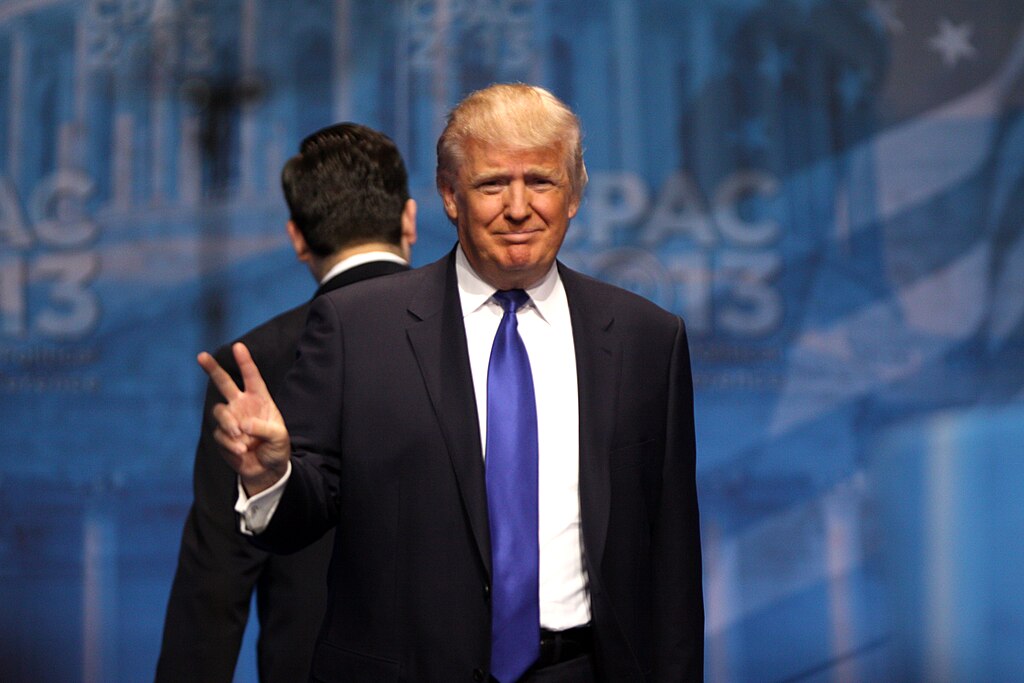President-elect Donald Trump has announced his intent to grant Robert F. Kennedy Jr. sweeping authority to overhaul U.S. health agencies. The move has sparked intense debate across the political spectrum, with proponents hailing it as a necessary reform and critics warning of potential chaos within the nation’s public health infrastructure.
Kennedy, a vocal critic of government health agencies and an advocate for transparency in scientific research, has been tapped to lead what Trump is calling a "return to gold-standard scientific research." The announcement comes as Trump prepares to take office, doubling down on his campaign promises to shake up Washington’s bureaucracy and challenge what he has repeatedly described as “broken institutions.”
A Controversial Appointment
Kennedy’s appointment has drawn sharp reactions, with supporters praising his commitment to accountability and detractors questioning his qualifications to spearhead such a massive undertaking. Known for his skepticism of vaccines and criticism of the Food and Drug Administration (FDA), Kennedy has pledged to scrutinize policies and practices that he claims have been overly influenced by corporate interests.
Health experts warn, however, that Kennedy’s history of controversial statements could undermine public trust in institutions critical to managing the nation’s healthcare system. “The stakes are enormous,” said one policy analyst. “Reforming these agencies is one thing, but risking the credibility of life-saving institutions is quite another.”
Trump’s Vision for Healthcare Reform
Trump’s decision to empower Kennedy aligns with his broader push to “drain the swamp” and redefine the role of federal agencies. By placing Kennedy in a leadership role, Trump aims to challenge what he perceives as entrenched inefficiencies and restore public confidence in scientific research.
The president-elect has repeatedly criticized agencies like the FDA and Centers for Disease Control and Prevention (CDC) for what he views as slow responses to crises and a lack of innovation. Under Kennedy’s leadership, Trump envisions a reinvention of these organizations to prioritize transparency and evidence-based policymaking.
Health Agencies Face Uncertain Future
Critics argue that Kennedy’s approach could disrupt critical operations and introduce unnecessary risks, particularly during public health emergencies. “Kennedy’s focus on dismantling agency norms could leave the country vulnerable,” warned a former CDC official, noting the importance of stability in maintaining public health infrastructure.
Proponents, however, see the shakeup as long overdue. “There’s a real appetite for change,” said one Republican strategist. “Kennedy’s appointment signals a willingness to challenge the status quo and prioritize public interest over bureaucratic inertia.”
Public Reaction Divided
The announcement has ignited a firestorm on social media, with reactions ranging from enthusiasm to outrage. While some praise the move as a step toward meaningful reform, others fear it could destabilize health systems that millions of Americans rely on.
As Kennedy prepares to take the reins, the future of U.S. health agencies hangs in the balance. Whether his leadership will usher in a new era of innovation or lead to unforeseen consequences remains to be seen.



 Israel Declares State of Emergency as Iran Launches Missile Attacks
Israel Declares State of Emergency as Iran Launches Missile Attacks  U.S.-Israel Strike on Iran Escalates Middle East Conflict, Trump Claims Khamenei Killed
U.S.-Israel Strike on Iran Escalates Middle East Conflict, Trump Claims Khamenei Killed  Argentina Senate Approves Bill to Lower Age of Criminal Responsibility to 14
Argentina Senate Approves Bill to Lower Age of Criminal Responsibility to 14  Trump Media Weighs Truth Social Spin-Off Amid $6B Fusion Energy Pivot
Trump Media Weighs Truth Social Spin-Off Amid $6B Fusion Energy Pivot  Pentagon to Halt Ivy League Programs for U.S. Military Officers Starting 2026
Pentagon to Halt Ivy League Programs for U.S. Military Officers Starting 2026  Trump Warns Iran as Gulf Conflict Disrupts Oil Markets and Global Trade
Trump Warns Iran as Gulf Conflict Disrupts Oil Markets and Global Trade  Philippines, U.S., and Japan Conduct Joint Naval Drills in South China Sea to Boost Maritime Security
Philippines, U.S., and Japan Conduct Joint Naval Drills in South China Sea to Boost Maritime Security  USITC to Review Impact of Revoking China’s PNTR Status, Potentially Raising Tariffs on Chinese Imports
USITC to Review Impact of Revoking China’s PNTR Status, Potentially Raising Tariffs on Chinese Imports  Pentagon Leaders Monitor U.S. Iran Operation from Mar-a-Lago
Pentagon Leaders Monitor U.S. Iran Operation from Mar-a-Lago  Pakistan-Afghanistan Tensions Escalate as Taliban Offer Talks After Airstrikes
Pakistan-Afghanistan Tensions Escalate as Taliban Offer Talks After Airstrikes  Israel Launches Fresh Strikes on Iran After Death of Supreme Leader Ayatollah Khamenei
Israel Launches Fresh Strikes on Iran After Death of Supreme Leader Ayatollah Khamenei  Australian PM Calls Alleged Western Australia Terror Plot “Deeply Shocking” After Arrest
Australian PM Calls Alleged Western Australia Terror Plot “Deeply Shocking” After Arrest  NYC Mayor Zohran Mamdani Meets President Trump to Tackle Housing Crisis and ICE Detentions
NYC Mayor Zohran Mamdani Meets President Trump to Tackle Housing Crisis and ICE Detentions  Macron Urges Emergency UN Security Council Meeting as US-Israel Strikes on Iran Escalate Middle East Tensions
Macron Urges Emergency UN Security Council Meeting as US-Israel Strikes on Iran Escalate Middle East Tensions  Netanyahu Suggests Iran’s Supreme Leader Khamenei May Have Been Killed in Israeli-U.S. Strikes
Netanyahu Suggests Iran’s Supreme Leader Khamenei May Have Been Killed in Israeli-U.S. Strikes  Venezuela Oil Exports to Reach $2 Billion Under U.S.-Led Supply Agreement
Venezuela Oil Exports to Reach $2 Billion Under U.S.-Led Supply Agreement  Federal Judge Blocks Virginia Social Media Age Verification Law Over First Amendment Concerns
Federal Judge Blocks Virginia Social Media Age Verification Law Over First Amendment Concerns 
































